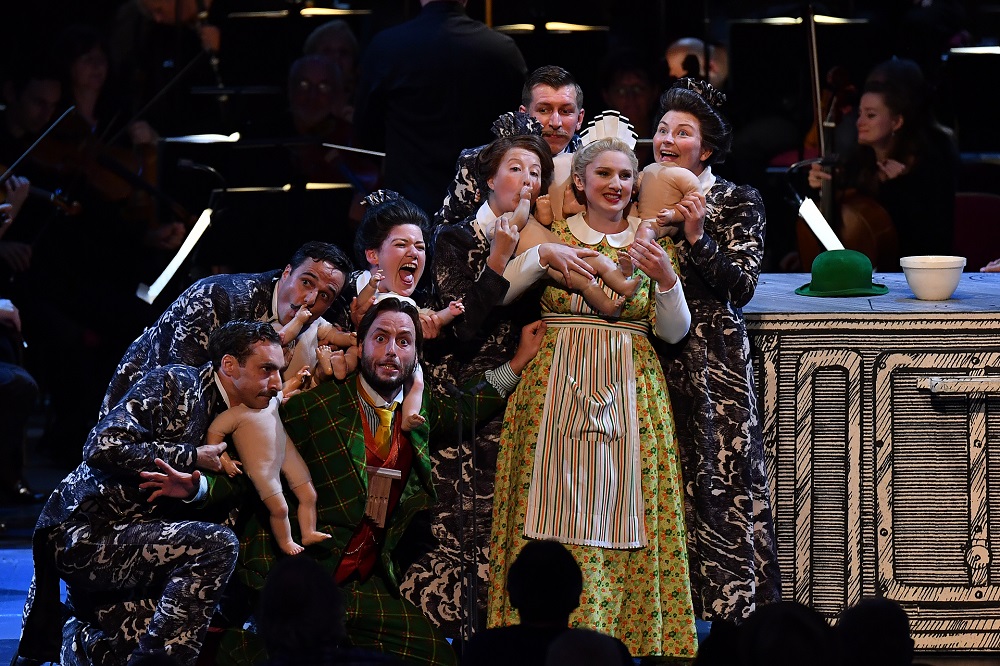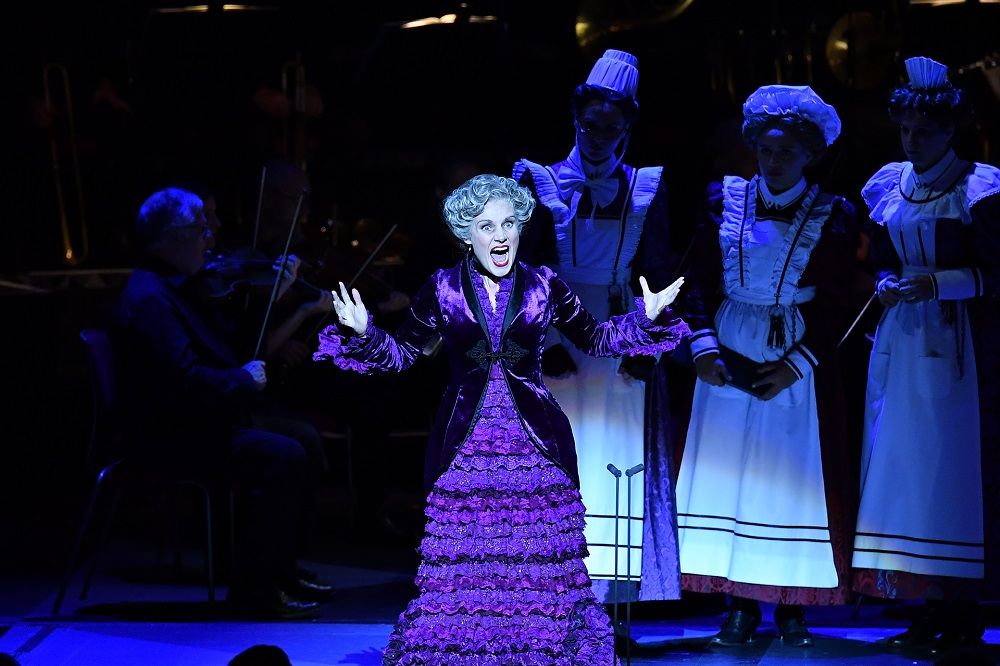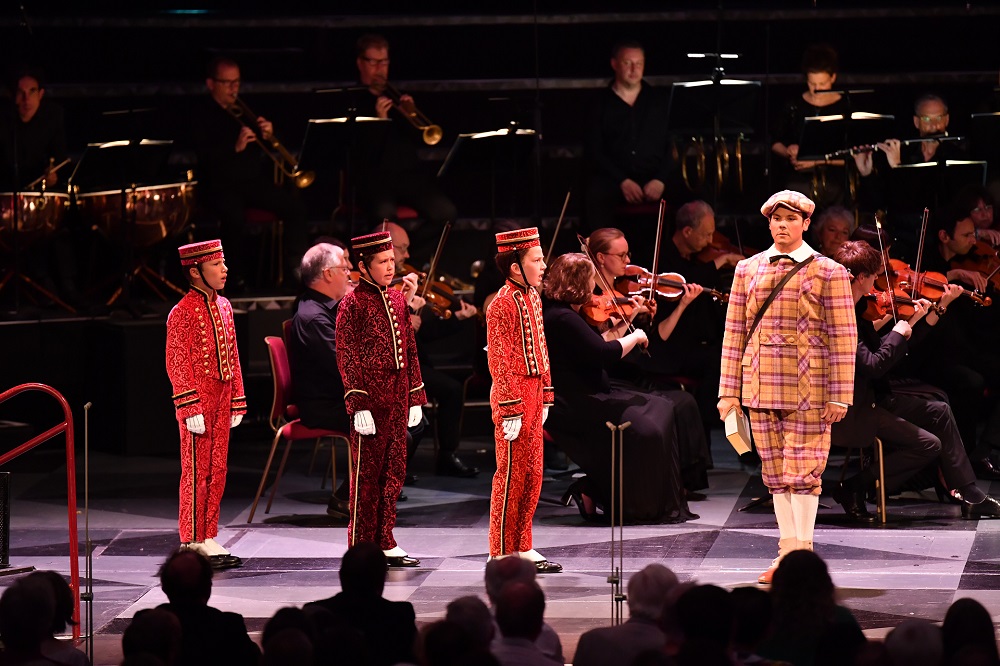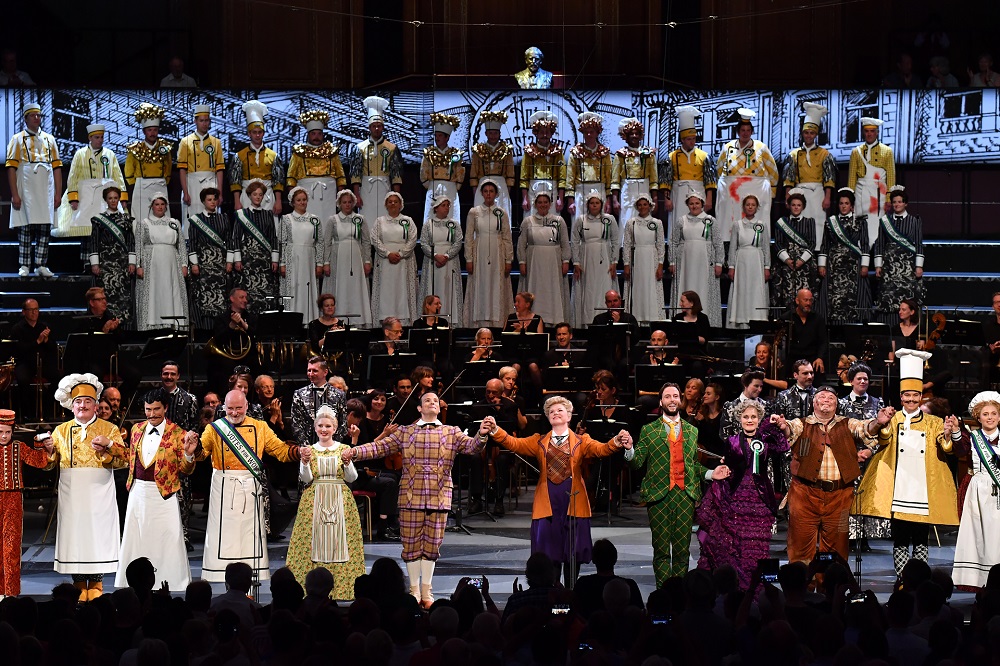Can we go back to an older Glyndebourne-at-the-Proms vintage, where the chosen production was merely sketched out with variations suited to the venue, and performed in whatever evening dress might be appropriate? Certainly one wishes that director-designer duo André Barbe and Renaud Doucet’s ingenious wardrobe for their reductive Edwardian-hotel, chefs-and-chambermaids Magic Flute could have been left down in Sussex. This would have given the serious stretches of the piece the simple gravity and musical focus Mozart deserves when he goes deep.
Unfortunately this was also an exposure of what Ryan Wigglesworth was up to with the Orchestra of the Age of Englightenment, and while his interpretation had many virtues, vivid projection of dramatic situations was not among them. Elegant lines smoothly blossomed, but the bristling vivacity so essential for pace rarely surfaced. There was no uplift - least of all among the violins, dim and dry from where I was sitting (not so for Ádám Fischer the other week at the Proms). The Albert Hall needn't be a black hole for period-instrument Mozart: it's a matter of energising, and there seemed to be precious little of that from the players, with honourable exceptions from over-dominant horns and Lisa Beznosiuk's nicely ornamented later flute solos. 
















Add comment